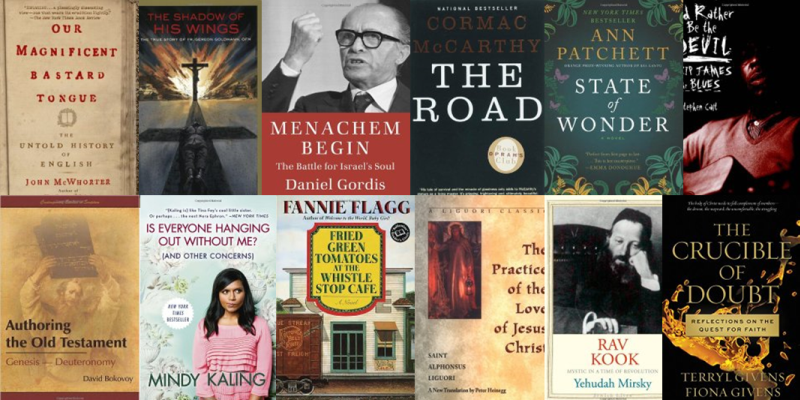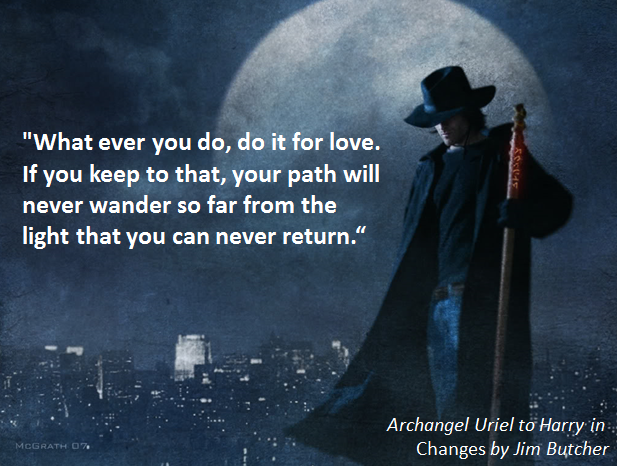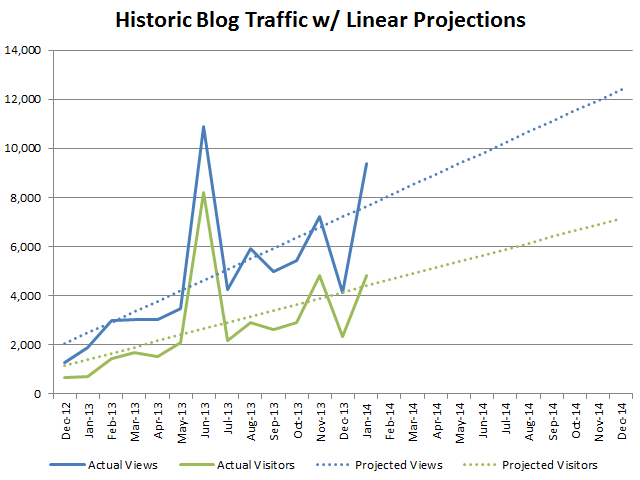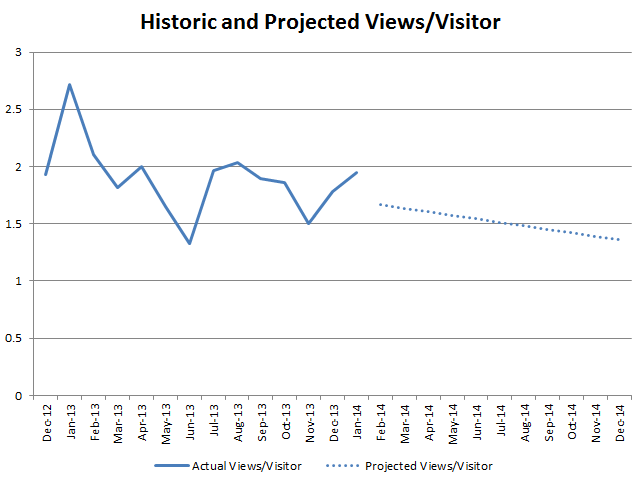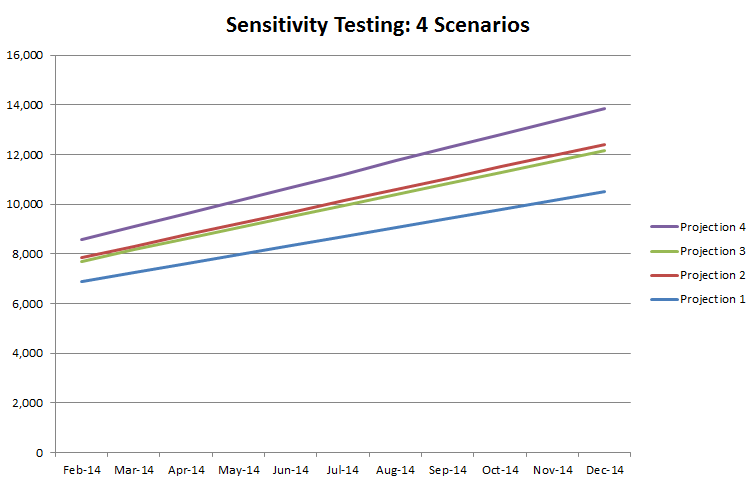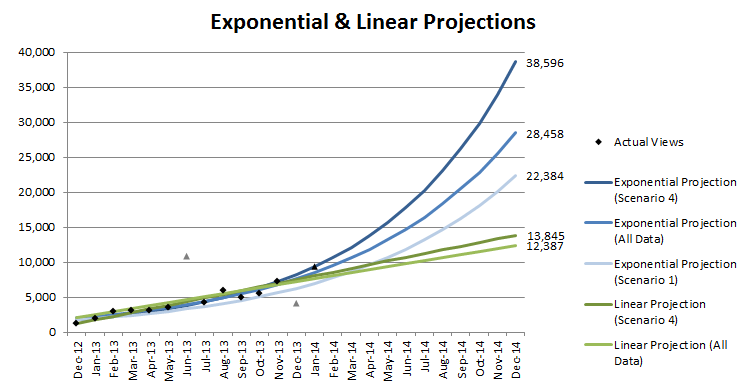At the beginning of every year, I post a review of the prior year.[ref]Here’s the review of 2014 from January 2015, if you’re curious.[/ref] I like to go over traffic stats, finances, other changes, and then talk about the year ahead. As an added bonus this time, I’m going to also review some of the stories from 2015 that have caused me second-thoughts since I wrote them.
2015 Traffic
Traffic stats do not motivate our posts here at Difficult Run, but as a data nerd I find them inherently interesting. And let’s not kid around: writing is a lot more rewarding when it has an impact. And for that to happen, other people have to read your stuff.
On that score, I’m pleased with the healthy growth we have here at Difficult Run. It might be a small fish in a big pond, but it’s our fish, and it’s growing nicely. Here’s a look at blog traffic for the three complete years DR has been online.
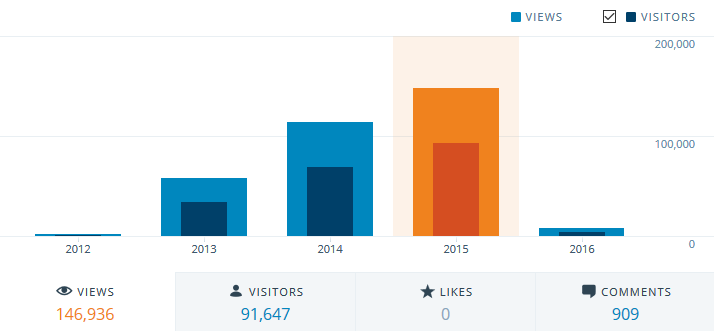
The exact totals are 57,270 (for 2013), 112,668 (for 2014) and 146,936 (for 2015).[ref]If you’d like a little context for those numbers, you can compare them with John Scalzi’s stats for the same year. John Scalzi is an award-winning author who just signed a multi-million dollar, 10-year book deal, and his blog (The Whatever) has been an Internet fixture since 1998. In 2015, he got nearly 6,000,000 views. So, about 40 times what we get at Difficult Run.[/ref] Here’s to cracking 200,000 in 2016!
We also have a Facebook Page that is up to 215 followers and an email list with 140 members. I also use a WordPress plugin called Jetpack to do basic site monitoring, traffic, and a few other things. And Jetpack puts its own year-in-review together. Here it is.
2015 Top Posts
Here are top 5 posts from along with their total views by the end of 2015:
- When Social Justice Isn’t About Justice (22,732 views since November 25, 2015)
- Some Sad Puppy Data Analysis (21,151 views since April 14, 2015)
- Lots of Hugo Losers (6,774 views since August 24, 2015)
- Why John Dehlin Faces Church Discipline (6,590 views since January 20, 2015)
- Wisdom and the Wiesn (2,076 views since October 1, 2015)
It’s kind of an interesting range of topics: politics, sci-fi, and Mormonism. Eclectic. That’s how we like to roll here at Difficult Run, although we also tend to have a lot of posts on economics (but no big ones that made the list this year.)
2015 Finances
We display Amazon ads on Difficult Run. The way those work, is that if you click the ad and then buy something from Amazon (even if you don’t buy the thing we were advertising), we got a small percentage of the order (usually about 4%).
We also ran some ads for the Church of Jesus Christ of Latter-day Saints at the end of the year, and that’s something we might try again in 2016, if they’d like us to. (None of the money from that brief campaign was received in 2015, however.
Additionally, I’ve received two very generous and unsolicited donations from an anonymous reader. Here’s how that all stacked up:
- Amazon Ad Revenue: $100.78
- Donations: $600
- Total: $700.78
During 2015, we were paying $30/month for hosting, and we spent another $15 on domain registration. So that was $375. So, for the first time, Difficult Run paid for its own hosting this year! That’s pretty exciting, and there’s enough money left over to pay for (most of) the hosting in 2016.
Difficult Run was never intended as a major source of revenue. The only goal has been to cover the hosting costs, which will continue to go up as our traffic increases. So far, we look to be self-sufficient (thanks primarily to our generous benefactor), and that is really nice.
Blog Changes: New Host! New Domain Registrar!
At the start of 2015, we outgrew the budget $5/month hosting that I’d been using since launching Difficult Run. Instead, we migrated to a dedicate WP hosting company. It was a huge improvement, but by the end of the year the new host was starting to let us down with extended outages and emergency server migrations. (Luckily a lot of this was during the Christmas – New Year’s period when traffic is pretty light.) So, earlier this month, we migrated to a new host.
Our new host is Appteryx. They were absolutely great about the transfer, despite the fact that I goofed and took down the old site before telling them that we had a deadline to get the new one up. They were gracious about that and—more than that—really, really fast. Website speed and reliability has also been great. If you’re looking for a host, definitely consider them.
We also switched our domain registrar. Our new registrar is Google. The old one went down several times in 2015, and I’m hoping that with Google that will no longer be an issue!
Second Thoughts from 2015
There are two posts that have given me second thoughts since I posted them in 2015. I’m sure these aren’t the only mistakes I’ve made. In fact, I don’t even really consider either one to be a mistake. (Although I have certainly made some of them!) They are just posts that haven’t really sat well with me in the months since I posted them. Let me tell you why.
Irving, Texas Saved from Homemade Clock (September 16, 2015)
This story seemed so simple to me when it broke. More than that, it resonated with me. Kids being bullied for being different? Especially nerdy kids? Yeah, that hit home. And so—along with a great deal of the Internet—I rushed to the keyboard to vent my outrage.
Don’t I know better than that?
I do. Or at least, I should. Looks like I had to learn the lesson one more time.
As far as I can tell, a lot of the original criticisms are still valid. The school’s reaction—and the police’s—seems unreasonable. No one ever thought that anyone was in real danger. However, the more that I read the less clear-cut it seemed. There was no single article that opened my eyes, but I paid attention over the coming months and lots of little things combined to make me think I’d been hasty in my rush to judgment. Examples: first, no clock was created. The kid just broke open an old clock and stuff it inside a little pencil case that looked like miniature briefcase. Those images were missing from the first stories (I saw one before I published mine, but ignored the second thoughts it prompted). This gets worse rather than better combined with stories that Ahmed actually was fairly skilled. He had made cool projects, but this wasn’t one of them. Several other things didn’t feel quite right, and then—most recently—came word that he was suing for $15 million. Given all the incredible gifts, opportunities, and offers he’d received from Silicon Valley and others, that just seems excessive.
I’m not going to make the same mistake in reverse. I don’t know exactly what was going on. I just can’t feel any confidence in my initial response, and I wish I’d waited rather than rushing to judgment.
Lesson learned. Again.
Thoughts on Immigrants, Refugees, and Fear (September 10, 2015)
Even more than with the previous issue, the emotional core of this is something I stand by. Reaching out in love and rising above our fear is so important to who we are—or should be—as a nation. I watched another GOP primary debate (this one without Trump), and it was so depressing to hear the candidates fall over each other to talk about how scary the world is, how scary ISIS is, how scary everything is. ISIS is a bunch of truly evil dudes, yes, but they’re not the USSR. We’re not facing the possibility of existential defeat in ISIS. Not from their guns or bombs, anyway. The bigger thread, by far, is that in our overreaction and in our fear we lose our own soul.
However, when it comes to the actual policy of immigration (especially to Europe), I have to admit that some of the skeptics had a point. One thing that was covered frequently at the time was that a great deal of the incoming refugees were unaccompanied young men rather than families. That raised red flags at the time, not necessarily in terms of their intentions, but in terms of the unique problems that this could have for integration.
Since then, one article that caught my attention came from the Gatestone Institute in October.[ref]A quick Wikipedia search shows that they are a conservative think tank. So there’s bias, but they aren’t a conspiracy theory website either.[/ref] Titled Germany: Migrant Crime Wave, Police Capitulate, the article cites the President of the German Police Union saying that German police “hardly dare to stop a car” in some neighborhoods, “because they know that they’ll be surrounded by 40 or 50 men.”
Meanwhile a December article shows that the response in Germany has been a historic run on weapons of all kinds.[ref]That comes from Infowars, which is a conspiracy theory website, but the bare facts—that Germans are buying handguns, pepper spray, etc. in record numbers appears substantiated with links to legitimate articles. My German is rusty (to put it mildly), but I’m asking a friend who speaks much better than I to look over them and confirm that Infowars accurately represents the information.[/ref]
And then early this month there were the harrowing tales of mass sexual assault committed by immigrant populations against young German women in cities across Germany, most notably in Cologne. It’s important to be cautious about stories that fit so neatly into racist stereotypes (“We have to protect our women!”), but the facts seem beyond dispute. One IB Times article has the total number of criminal complaints from New Year’s Eve up to 516, with nearly ½ of them related to sexual assault. Reporting at CNN and Der Spiegel concurs.
It’s not like this is all new to me. In the original article, I wrote:
We should not be reckless and we should not be irresponsible, but we should also not be afraid to take chances to do what ought to be done.
I knew things could go wrong. I just didn’t expect it to be so blatant or so fast.
I’d like to end on a positive note. As covered by the BBC, in December 2015 Muslim Kenyans refused to allow themselves to be separated from Christian Kenyans and in so doing prevented their Christian neighbors from being massacred by Islamist terrorists. And then, just a couple of days ago, a conference of Muslim leaders meeting in Morocco released a statement citing religious freedom in the ancient Constitution of Medina, highlighting the “urgent need for cooperation among all religious groups,” and saying that “such cooperation must go beyond mutual tolerance and respect, to providing full protection for the rights and liberties to all religious groups in a civilized manner that eschews coercion, bias, and arrogance.”
Religious understanding is possible. It is essential. But it can also be hard and complicated. For me, this means I assess the risks as even higher than I thought they were, but still believe in the essential mission of moving against the current of fear instead of giving into it.
Difficult Run in 2016
We already have a ton of great articles lined up. As for myself, personally, I have several topics that I want to do some research on before presenting them here. Sites like Wait But Why and Slate Star Codex along with pieces like When Social Justice Isn’t About Justice and Some Sad Puppy Data Analysis all give me confidence that if you invest the time in research and longer, original pieces you can find an audience and make an impact. In particular, I’ve got a series of articles on the definition of religious freedom a friend (and law professor) gave to me and also a series of articles comparing the role of Sharia in the US court system to ecclesiastical courts from other faiths (especially Jewish Halakha.) So look forward to those, and also to some new members we hope to bring on board this year.
2016, here we come!


